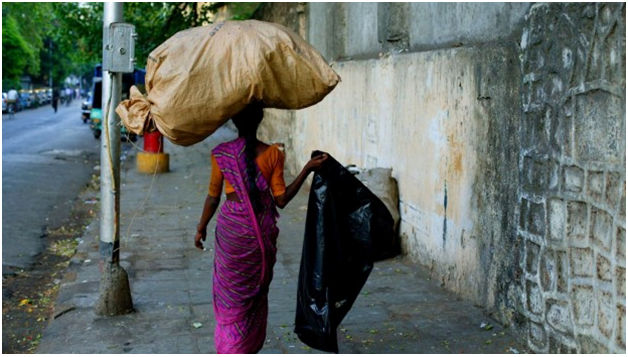Crony Capitalism At its Worst
Recently a leading newspaper that had filed an RTI reported on the basis of the response, that 29 state-owned banks have written off a total of Rs 1.14 lakh Crore of bad debts (technically called Non Performing Assets or NPAs) of business houses, between the financial years 2013 and 2015 in what is a classic case of crony capitalism.
In a way, this is not unique. As we saw in the US in 2008, the moment private business started showing signs of diarrhoea, the state turned nanny and rushed to conceal the embarrassment of its "otherwise healthy" and "accomplished" baby with adult diapers.
Suddenly, the fountainhead dried up, humbled to its fallible existence. Atlas stopped shrugging and tumbled down at the feet of the Sovereign. Then the state came up with "Too big to fail" excuse and proffered public funds. Coming out of hospital on clutches, the ever-ungrateful Atlas thought its clutches were invisible and started strutting around like marathon runner. This has been an oft seen event since seventies of last century.
If this be the universal practice, then why complain?
The complaint is about the blatant double speak of the present Modi Government. On the one hand there is a promise of pro people, pro poor policies. Contrary to all electoral promises, these dream merchants, in their first full year budget implemented massive cuts in the social sector to the extent of Rupees 4 lakh Thirty Nine Thousand Crores. This includes sectors critical to overall social development like Women and Child Welfare and Water and Sanitation.
It is a well known fact that four of ten disabled children in the world are Indian and about 1.5 million children die annually before turning five. When it comes to farmers and their plight PM Modi becomes suddenly emotional and tearful. But all this vanishes when it comes to deciding budget allocation for MGNREGA, which was slashed by 44% during the last budget in one year. It did not warrant a loan waiver, which is available at call for our corporate honchos.
Banking professionals divide the Indian business sector among corporates and crooks. The NPA crisis today is due to the highly politicised PSB lending spree between 2008 to 2010. Most of this lending has been partly to industries from the infrastructure and extraction sector, which is relatively young and flooded with political patronage.
Interestingly the list of the top 10 most indebted companies accounting for 12 % of total NPA is very revealing. As per Credit Suisse, in recent times, the debt level of these top 10 parasites has gone up by 15 %. More interestingly, many of these groups have several infrastructure projects under construction, where the net debt increase has outpaced the capital expenditure during this period, the Credit Suisse report says. Thereby meaning, they are borrowing more than they are investing. In other words sucking resources out of the public system and diverting to purposes other than what the approval is for. According to the same report our poster boy corporate the Adani Group has a year on year growth in debt level of 14 %
These are not the Entrepreneurs like Ford and John Deere in early America. For example, John Deere Senior was a village blacksmith who graduated from repairing simple farm equipment to making Tractors to today manufacturing 400 HP Combined Harvesters. Such enterprise building means developing technology, building organizations and honing management technology. Nor there are mad geniuses like Bill Gates or Steve Jobs who can ideate and produce category-breaking products to generate wealth for the society. Our IT sector is a glorified printing press debugging computer programs or sweat shops which can only buy cheap and sell dear. This level of Entrepreneurship and Skill is only adequate for running at best a street corner grocery shop.
Our misfortune is compounded by the fact that there is this open nexus between politicians and business, a dangerous trend thrusted on us by Neo Liberal Economic policies under the WTO regime. This is going to lead to a US like situation where the most ill kept secret is the quid pro quo arrangement between Wall Street and White House. Soon a revolving door will emerge between the two, thereby weakening the bureaucracy and entry of paid professionals as policy makers who will serve their corporate masters who in turn will serve their political masters. The only difference is that all will happen at a much smaller,almost pygmy like, level. So is the right term the Indian Wall Street or just our desi Khau Galli?





